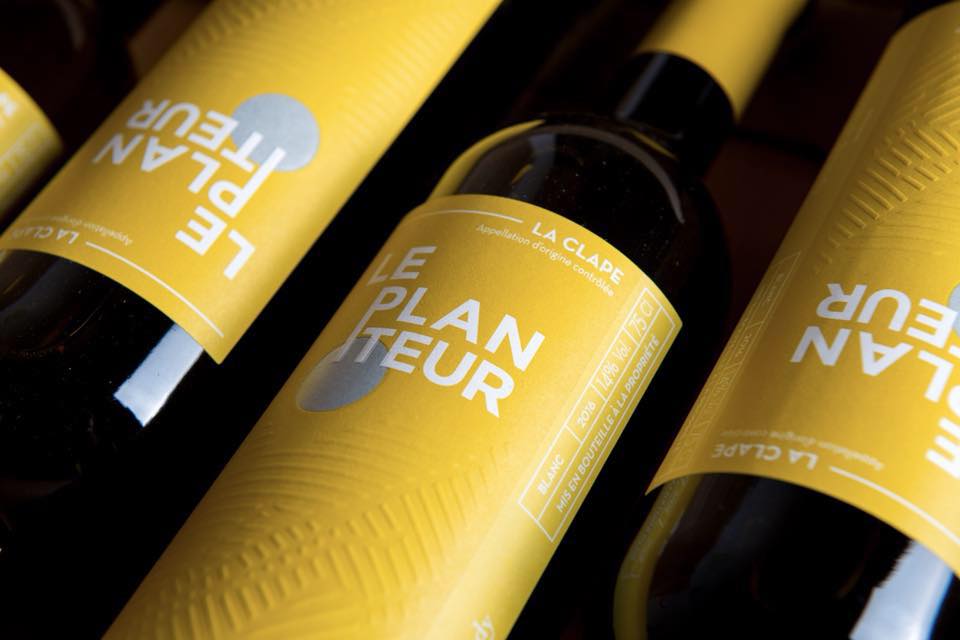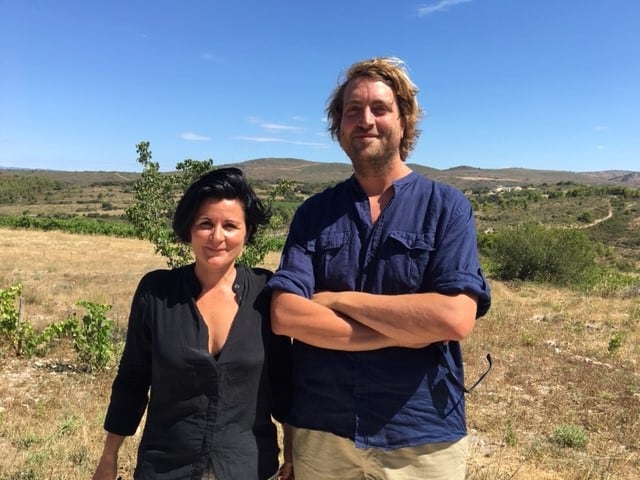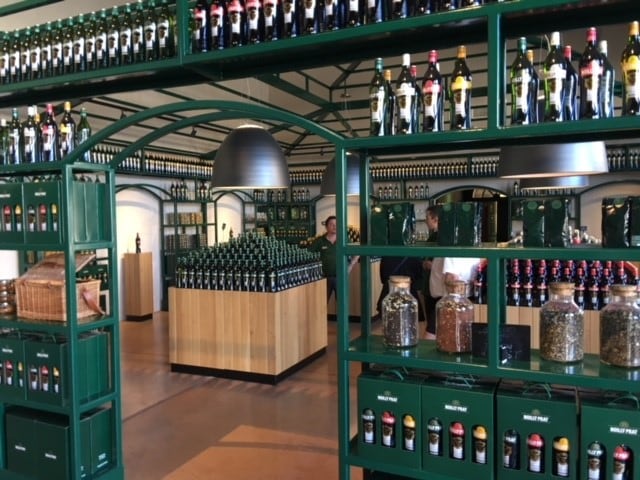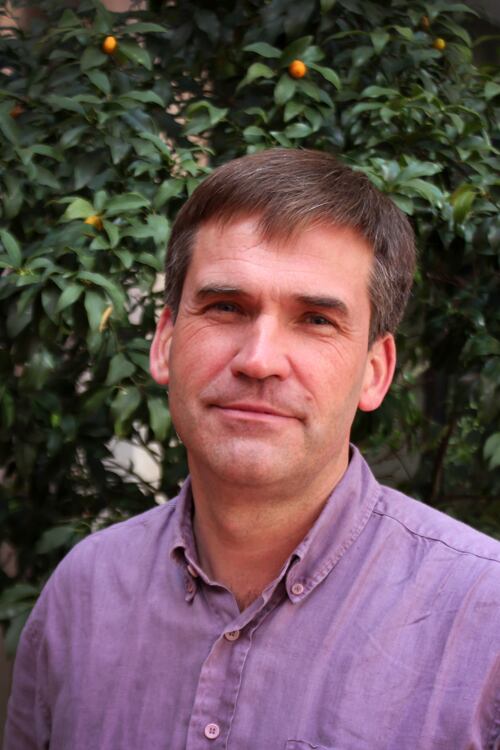
The association held the 15th edition of its ‘La Cuvée Agropolis’ at Domaine de Saporta, Montpellier, this month, to highlight the work it does in training, scientific research and innovation in viticulture and wine, inviting a jury panel to blind test a selection of wines from a different region in Languedoc-Roussillon in France, each year.
Château Marmorieres
Currently 40% of wines produced in the Languedoc-Roussillon region are exported, while the domestic market (60% of volumes) is oriented towards supermarket distribution.
This year, the chosen region was La Clape and the winner was Les Amandiers by Château Marmorieres (red 2017), produced by winemaker Jehan de Woillemont and a "coup de coeur" white wine, Le Planeur by Domaine Sarrat de Goundy (2017).
The blind test included 13 lots of red wine AOC La Clape with a jury of 17 people, moderated by Jean-Philippe Granier, technical director and oenologist of the AOC Languedoc Union, comprised of French and international scientists, representatives of local authorities and professional organizations, and wine experts from international organizations that are members of Agropolis International.
The selected wine will now be showcased at national and international events organized by the association. The cuvée is also offered to visitors of Agropolis and will appear on the wine list of the restaurants frequented by the member establishments of the association.
Jury member Nicolas Roux, head of genetic resources, Bioversity International, a CGIAR research centre, part of Agropolis International, told BeverageDaily the objective of the event is to associate the reputation of Agropolis International with its international influence, with the regional production of wine.
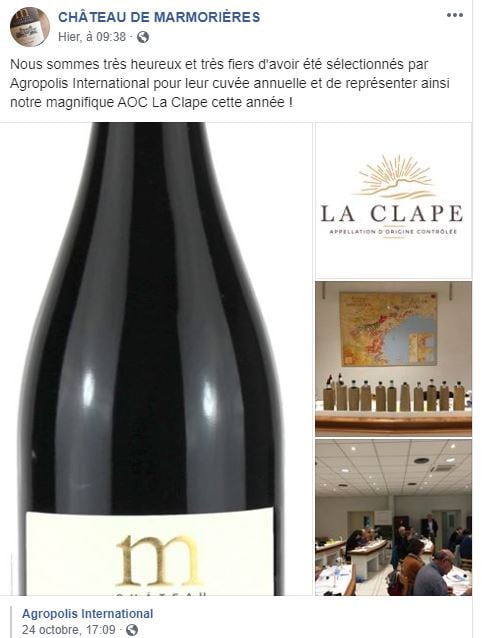
“Agropolis International is a scientific community in Montpellier and the Occitanie area on the Mediterranean coast of France and Europe, in the fields of agriculture, food, biodiversity and environment with 2,700 research scientists and lecturers,” he said.
“I have been a member of the international association since 1986 as a Biodiversity member. The event is important for the association and the researchers working on biodiversity and climate change as its connection to the wine industry becomes more and more important.
“La Cuvée Agropolis will hopefully motivate others to work on the biodiversity of crops in general, and to promote the wine of this region to people from all around the world and to gain a better understanding of the history of this region.”
Domaine Sarrat de Goundy is currently in the middle of a crowdfunding campaign to contribute to the purchase of doliums (large sandstone jars) on the estate to make wine.
The estate bought a number of terracotta jars in 2013 which can hold 155 litres of wine and now has 25 in total but wants to buy doliums to produce its white wine, which can hold 950 litres.
“The sandstone favors a more adapted breeding method than the terracotta jars to the structure of our white wines and we would be happy to have this new element of experimentation to reveal again the beautiful nature of our wines and their soil,” said Olivier Calix, wine maker, Domaine Sarrat de Goundy.
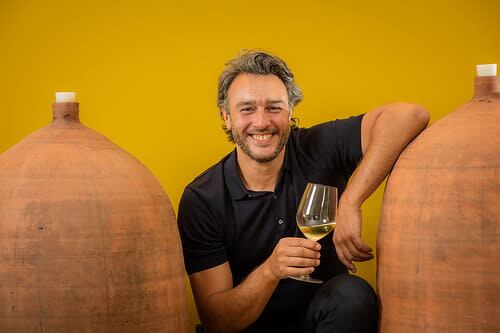
"We currently produce the Mano wine in red, aged in terracotta jars and we want to create its counterpart in white. With a minimum of two months production time."
The Estate needs a minimum of €10,000 to acquire two doliums and has already surpassed this mark but with more funds it will buy more jars, The deadline to make a pledge is November 9, 2019.
Novinpak
Other projects Agropolis International is working on include; Novinpak, where researchers are developing an eco-friendly rPET bottle for wine, supported by Val d’Orbieu-UCCOAR and institution scientists (CNRS, IRSTEA, INRA) and industrial partners (Sidel and Pure Environnement) and reducing vineyard dependence on pesticides.
The Diversity, Adaptation and Breeding of Grapevine (DAAV) team from the joint research unit Genetic Improvement and Adaptation of Mediterranean and Tropical Plants (UMR AGAP – CIRAD, INRA, Montpellier SupAgro) is looking at breeding more disease resistant grapevine varieties that are better adapted to climate change while being of high quality.
The unit focuses on three lines of research: studies on the diversity and evolution of grapevine and related species; identification of the genetic and molecular basis of traits of interest and adaptation; and integration of this information for trait prediction and breeding of innovative varieties.
The research unit formed the joint technology unit (UMT) Géno-Vigne in partnership with the French Institute for Vine and Wine (IFV), to interact with professional stakeholders in the sector.
DAAV has also partnered with the world’s largest grapevine genetic resources collection at Domaine de Vassal in Marseillan and has various technical and equipment resources (experimental plots, greenhouses, growth rooms).
Ecophyto
Aside from this, the French Agriculture Ministry’s Ecophyto wants to reduce pesticide use by 50% in France by 2025.
Since 2013, a joint technology unit (UMT) ECHOTECHVITI (IFV, IRSTEA, Montpellier SupAgro) is developing sustainable viticulture systems by reducing vineyard dependence on pesticides while maintaining their competitiveness.
It has chosen a Languedoc vineyard estate for vitiviniculture training and development at Domaine du Chapitre, which is one of two experimental wine-growing estates of Montpellier SupAgro. The estate, at Villeneuvelès-Maguelone, 10km from La Gaillarde campus (Montpellier), covers a 130 hectare area, including 35 hectare of vineyards.

